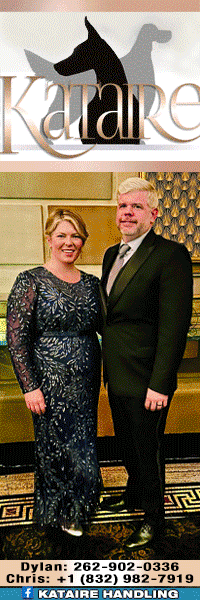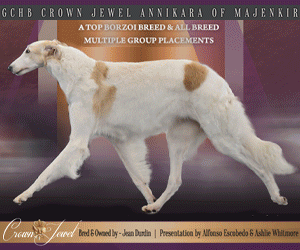Tax Matters – Operating in a Businesslike Manner
Click here to read the complete article
by John Alan Cohan, Attorney at Law
Doctor Thomas Burger had no prior experience in dog breeding. He and his wife, planning on retirement, decided to breed and raise Afghan hounds, finding that top hounds can command sales prices of several thousands of dollars. He did not realize that his breeding efforts would be challenged by the IRS in a case that ended up in Tax Court [Burger v. Commissioner, TC Memo 1985-523].
The Burger’s embarked on an educational program in which they attended seminars on dog breeding, read books and journals on the subject, and consulted with dog breeders. They consulted an accountant with regard to keeping adequate books and records, and an attorney concerning the need to obtain a zoning variance, a kennel license, and whether or not to incorporate.
They researched the particulars of Afghan dog breeding before starting the venture. However, they never calculated the cost of the venture, the risks it involved, or the potential revenue.
They purchased three Afghan hounds from a major breeder, after consultations with others in the field. They entered the dogs into shows, and one finished to champion and was named Best of Breed at a national show as well as the Westminster Kennel Club Show. They were offered $25,000 for this animal but declined to sell her. The taxpayers bred their dogs and sold pups, with mixed results. Two of their dogs incurred medical problems that led to infertility.
Despite advice obtained from their attorney, the Burger’s did not seek a zoning variance, did not license any of their dogs despite an ordinance requiring animal licensing, nor did they seek a license to run a kennel.
As many dog breeders do, they took tax deductions for the losses they sustained in their kennel operations. However, the IRS denied their deductions, claiming it was a hobby, and the matter ended up in Tax Court.
The Tax Court held that the Burger’s failed to carry on the activity in a businesslike manner or maintain adequate records. The court said the taxpayers failed to periodically determine profitability or to analyze expenses such that proper cost saving measures might be implemented. “We believe that if petitioners’ primary objective was to achieve profitability of their operation, they would have shown greater interest in monitoring the costs they incurred,” so that they could discover ways of reducing them.
The Tax Court said the Burger’s did not adequately determine beforehand how they could make a profit: “While a formal market study is not required, a basic investigation of the factors that would affect profit is. They undertook the activity with no concept of what their ultimate costs might be, how they might operate at the greatest cost efficiency, how much revenues they could expect, or what risks could impair the generation of revenues.”
The lesson here is that even if you have dogs that have attained championship status, you should operate in a businesslike manner if you intend to deduct losses against outside income. That means compliance with zoning laws, animal licensing and kennel licensing laws. You should be able to prove that you researched the marketing end of things before embarking on the venture. Also, it is important to analyze expenses from time to time and determine if cost-savings measure might be implemented to enhance the chances of making a profit.
John Alan Cohan is an attorney representing people in federal and state tax disputes, IRS appeals, and Tax Court litigation, and is a long-standing author of a legal advice column published in numerous sporting magazines. In addition, he advises organizations on compliance with newly enacted laws and regulations. John is also author of the book, Turn Your Hobby Into A Business — The Right Way. He can be reached at: (310) 278-0203, or email at johnalancohan@aol.com. His website is JohnAlanCohan.com.
Short URL: http://caninechronicle.com/?p=99801
Comments are closed











